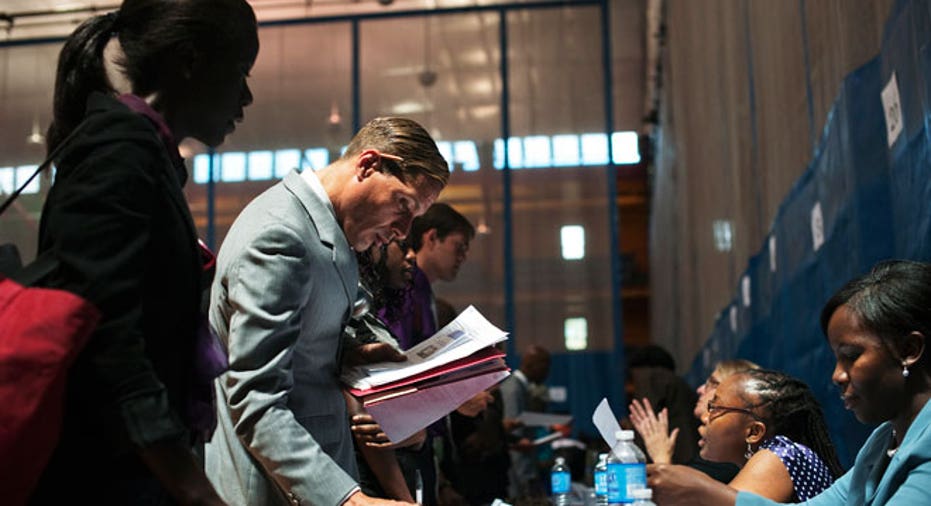Weekly Jobless Claims Rise, Computer Issues Persist

The number of Americans filing new claims for jobless benefits rose last week, but it was difficult to get a clear read on the labor market's health because two states appeared to be working through a backlog of unprocessed claims.
Initial claims for state unemployment benefits increased 15,000 to a seasonally adjusted 309,000, the Labor Department said on Thursday.
Claims data have been thrown into disarray since an update to government computer systems in California, the nation's most populous state, and Nevada created a backlog in the processing of new claims two weeks ago.
That initially led to a sharp decline in new processed claims earlier this month, and a Labor Department analyst said the two states still appeared to be working through the backlog, which he said could take another week or two.
If taken at face value, the data hinted at a pickup in hiring during September that might make the Federal Reserve more comfortable about a plan to begin winding down a bond-buying economic stimulus program.
"This report paints a very encouraging picture on the job separation side of the labor market, which continues to see signs of sustained improvement," said Millan Mulraine, an economist at TD Securities in New York.
At the same time, policymakers have recently appeared more demanding about how much better the outlook for hiring must be before they trim monthly bond purchases.
The U.S. central bank surprised investors on Wednesday by saying it wanted to see clearer signs of an improved labor market outlook before scaling back its stimulus program. Most investors expected the Fed would reduce bond purchases this month.
"Although claims are progressing on a lower trend, the Fed doesn't seem to be satisfied about the recent development of the labor market," said Annalisa Piazza, an analyst at Newedge Strategy.
The claims data was collected during the same week the Labor Department surveys employers for its monthly employment report.
At 314,750, the four-week average was about 5 percent lower than it was during the employment report's survey week in August, when employers added a lackluster 169,000 jobs to payrolls.
However, even that reading, which smooths out weekly volatility, could rise in coming weeks if a backlog of claims continues to be cleared.
The data appeared to have little impact on Wall Street sentiment. Futures for U.S. stock indexes were higher following the Fed's surprise decision on Wednesday.
GLOBAL IMBALANCES
Data in a separate report highlighted how much an increase in American exports is helping the global economy achieve a more healthy balance of trade and money flows.
Higher U.S. exports narrowed the country's current account deficit in the second quarter to its lowest level in four years, the Commerce Department said.
The current account deficit, a broad measure of the flow of goods, services and money across national borders, dropped to $98.9 billion in the April-June period from a revised $104.9 billion in the prior period.
The second quarter level was the lowest since 2009. The gap was equivalent to 2.4 percent of national economic output, the smallest ratio since 1998.
The United States' persistent current account deficit is widely seen as a problem for the global economy, along with persistent current account surpluses in countries such as China.
America's current account deficit has narrowed substantially in recent years from a record high 6.2 percent of GDP in the fourth quarter of 2005.
Much of the narrowing came from an increase in U.S. exports, which rose 0.9 percent from the first quarter.
Economists polled by Reuters expected a fourth-quarter current account deficit of $97 billion.



















